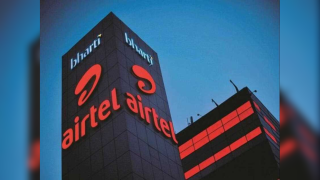However the firm said its repositioning to a digital service provider (DSP) helped mitigate some losses.
According to its full year financial results published over the weekend, 50% of Ooredoo Group's total revenue was generated by data across its international markets in 2020.
In Kuwait, Ooredoo Group became the first operator to launch prepaid 5G internet and in Tunisia registered the fastest 4G mobile data speeds in the country; although the customer base there decreased to 8.1 million in 2020, from 9.2 million in 2019.
In Indonesia, network improvements saw Ooredoo recognised with an Opensignal Global Mobile Experience Award.
Data traffic saw a "significant increase" year on year in Myanmar in Q4, and demand for a "seamless digital experience" saw active users of the My Ooredoo App reach 3.2 million.
“Ooredoo Group demonstrated the resilience of its operations in 2020, maintaining healthy cash reserves and liquidity levels, and expanding its customer base despite the challenging environment," said HE Sheikh Faisal Bin Thani Al Thani (pictured), chairman of Ooredoo.
"2020 was a year unlike any other, which disrupted lives and challenged organisations. I am proud of the role that we played in keeping communities connected and the economy moving. Our focus on innovation and digitisation has enabled us to seamlessly serve our customers through our digital channels while allowing our staff to work from home in a safe and productive manner," he added.
Total revenue for 2020 stood at QAR 28.9 billion, due to the impact of Covid-19, with Ooredoo highlighting challenges in handset sales, roaming revenues and " macroeconomic weakness in some markets".
Net profit decreased by 35% over the year, dropping to QAR 1.1 billion, and the board recommended a dividend of QAR 0.25 per share. The AGM is scheduled for 3 March.
This loss was attributed to lower EBITDA and one-off gains in 2019 from the sale of Indonesian towers. Specifically in Q4, forex losses added to the decline, which Ooredoo said was "mainly due to the devaluation of the Iraqi dinar and a one-off impairment from an investment".
EBITDA declined by 6% year-on-year to QAR 12.1 billion in 2020, impacted by lower revenues and challenging market conditions across most markets. Oordoo said the "healthy" margin of 42% last year reflected its focus on digitalisation.
Ooredoo Group expanded its customer base by 3% to 121 million customers, boosted by additions in Iraq, Indonesia and Myanmar.
Aziz Aluthman Fakhroo, who was appointed MD of Ooredoo in November, said: “Throughout the year, we remained focused on our cost optimisation strategy, which enabled us to maintain a robust EBITDA margin of 42% in 2020. EBITDA during the year was QAR 12.1 billion, down slightly from QAR 12.8 billion in the previous year due to the decline in revenues.
"Ooredoo Qatar provided a solid performance in 2020 growing its customer base at strong EBITDA margin, despite a range of challenges caused by COVID-19. Indosat Ooredoo delivered a strong performance with revenues and EBITDA increasing year on year by 4% and 11%, respectively while Ooredoo Myanmar’s market leading infrastructure supported an increase in revenues, EBITDA and a 28% increase in its customer base. Ooredoo Tunisia reaffirmed its position as the number one telecom player by customer market share"
Quoting the 3% customer base gains, Fakhroo added: "Ooredoo Group continues to witness strong demand for its product and services."
There will be more on Ooredoo Group's focus on becoming a DSP in the April/May edition of Capacity magazine.





